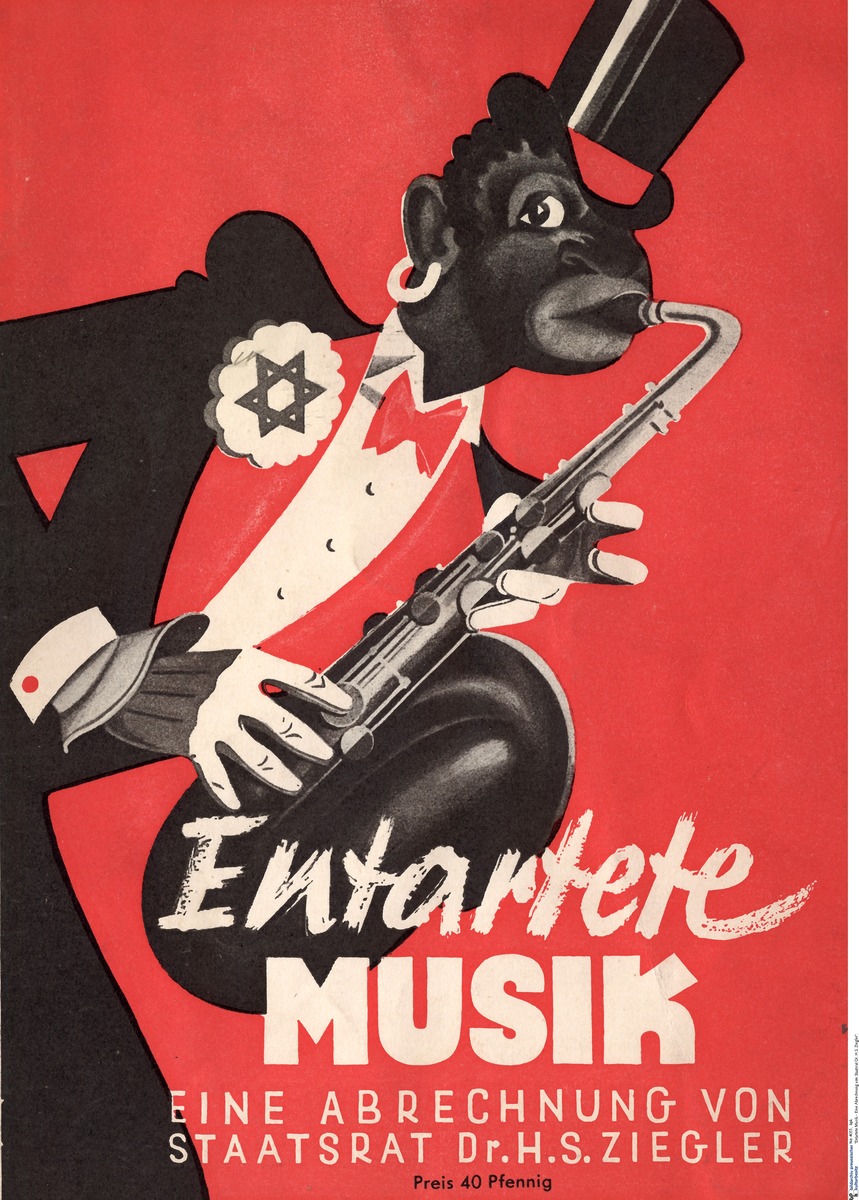Abstract
As with the visual arts, the Nazis aimed to demonstrate the
difference between good “German“ music and “degenerate“ music by staging
major cultural events. To this end, they organized the
Reichsmusiktage [Reich Music Days] in
Düsseldorf from May 22-29, 1938. This week-long event included concerts
and lectures that presented ideologically and ethnically “pure” music.
It was accompanied by the “Degenerate Music” exhibition, which opened on
May 24. The show was similar in concept to the “Degenerate Art”
exhibition – its main purpose was to document the work of artists who
had been defamed by the Nazi regime since 1933. The
Reichsmusikprüfstelle [Reich Music
Inspection Office], which was part of the Reich Propaganda Ministry, had
drawn up a list of “degenerate” artists and their works for this
purpose. The exhibition covered all areas of music, from composition,
performance and criticism to musicology and promotion. Examples of
“degeneracy” were found in classical music in composers such as Alban
Berg, Paul Hindemith, or Igor Stravinsky, and in the genres of jazz and
swing in general. The exhibit’s main organizer was Privy Councilor Dr.
Hans Severus Ziegler, who was director of the Weimar National Theater.
Ziegler was also head of the Cultural Office in the
Gau of Thuringia, and had carried out
“cleansings against cultural Bolshevism” in Thuringia even before 1933.
The visual component of the exhibition consisted of photographs,
portraits, paintings, caricatures, and posters intended to illustrate
the “subhuman” character of the featured musicians and the inferiority
of their works. One such example appeared on the cover of the exhibition
guide (below). The image was based on the cover sheet of Ernst Krenek’s
opera “Jonny spielt auf” [“Jonny Strikes up the Band”] (1925-26), but
replaced the carnation on the African-American saxophonist’s lapel with
a Star of David. The opera had been banned in 1933, and Krenek, an
Austrian, had emigrated to the U.S. after the annexation of his country
[Anschluss] in 1938.
The exhibition remained on view in Düsseldorf until June and
subsequently traveled to other cities along with the “Degenerate Art”
exhibit. As of 1938, the Reich Music Days were supposed to take place
annually, but they were canceled after the beginning of the war in
1939.
